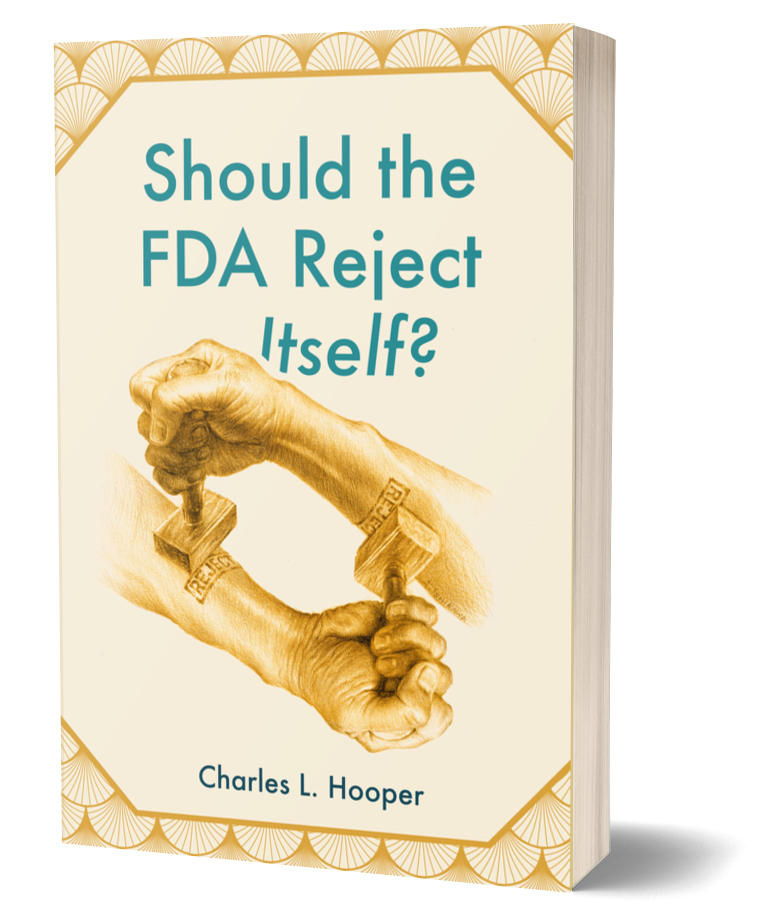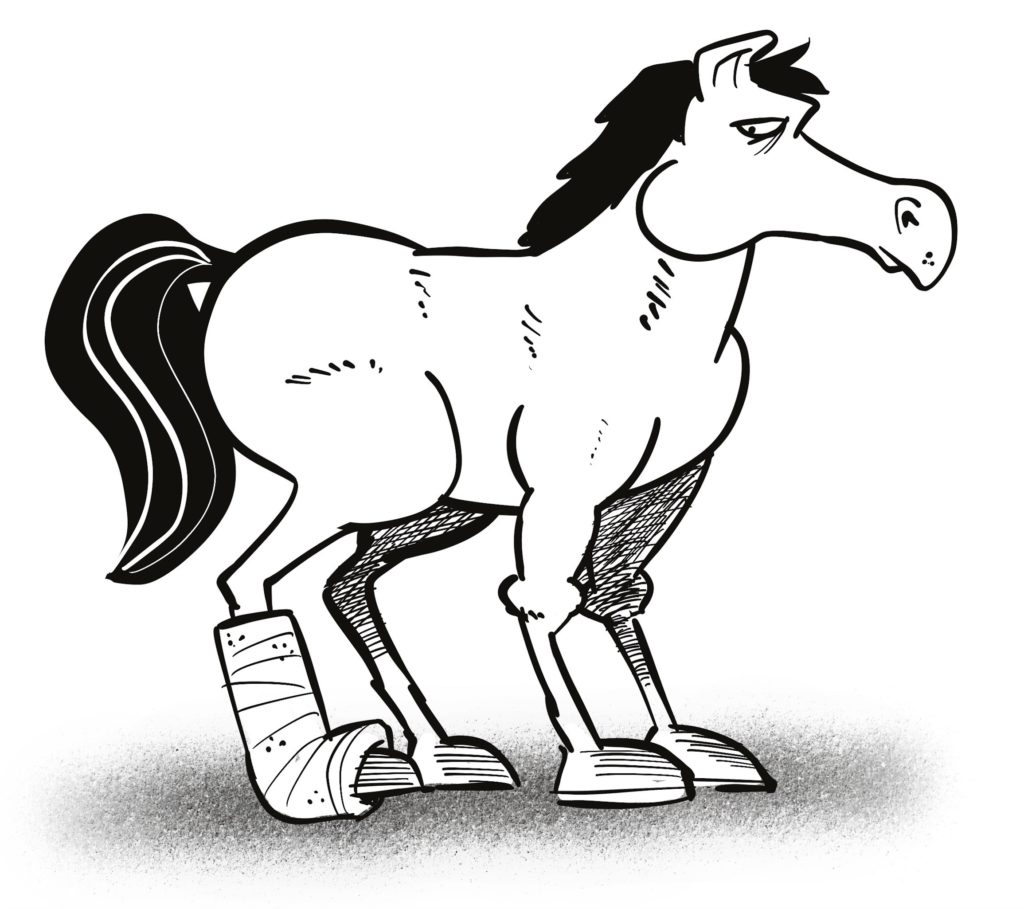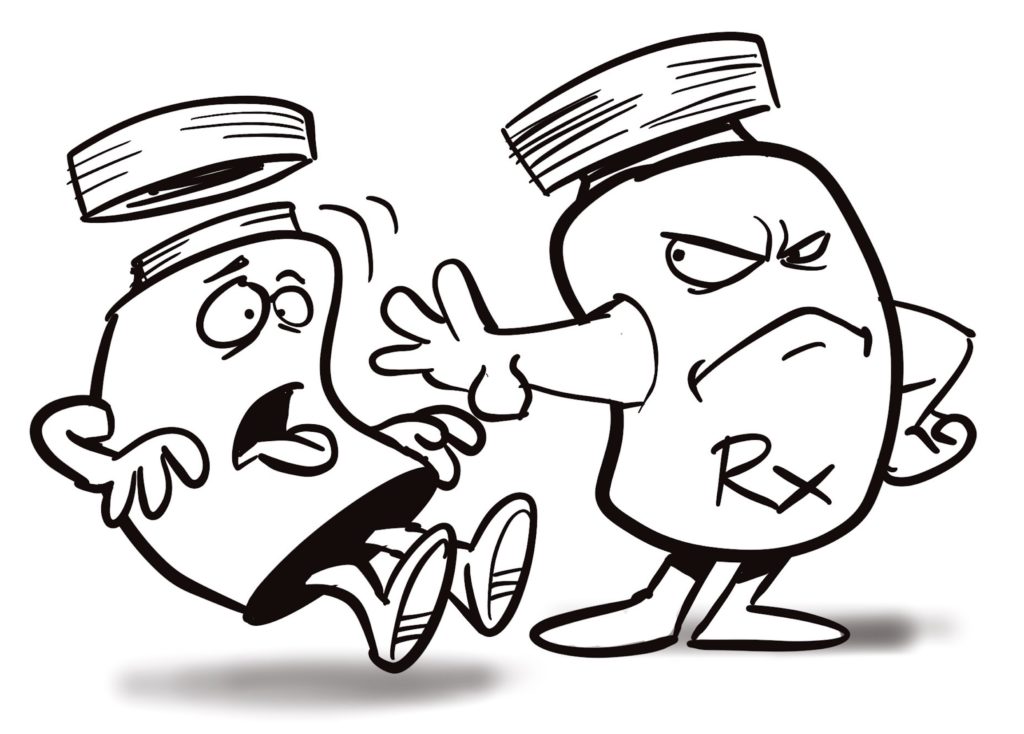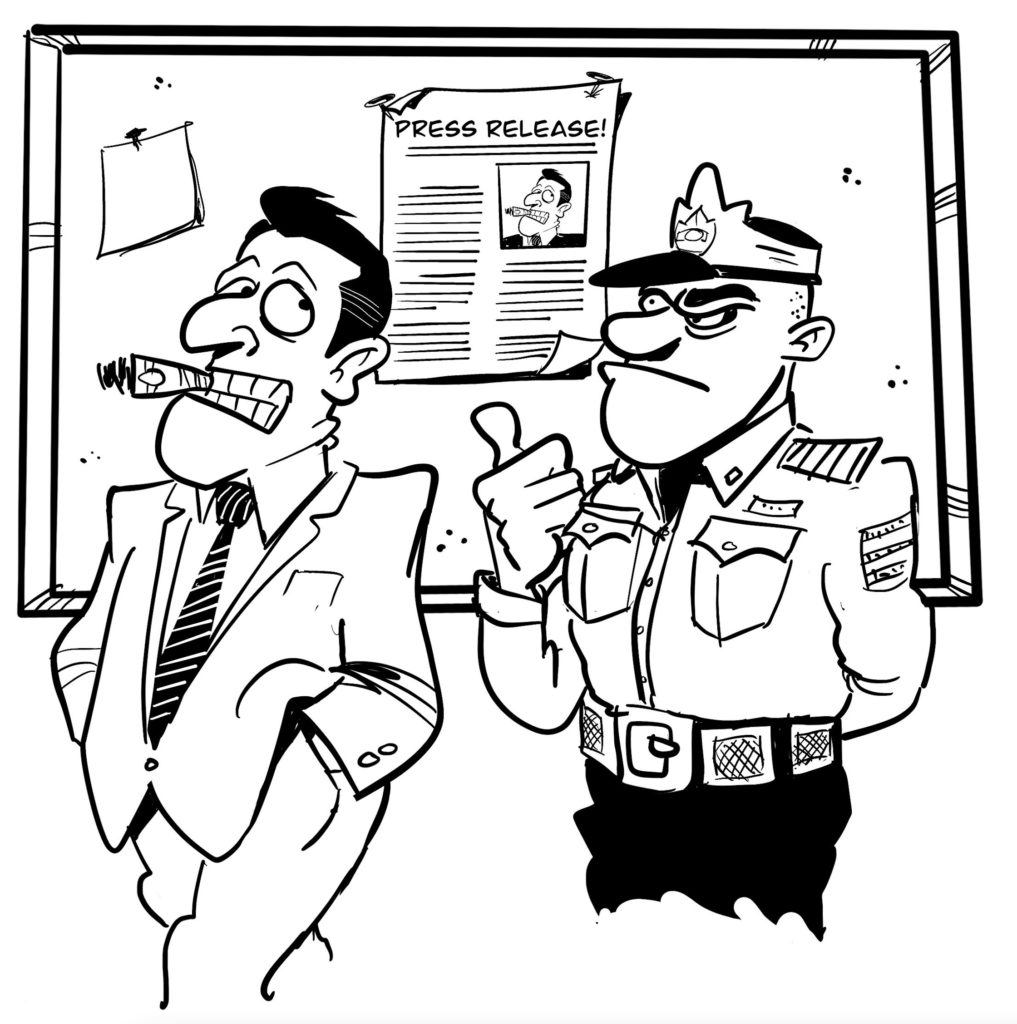
Should the FDA Reject Itself?
By Charles L. Hooper
The best book ever written on the FDA.
Daniel Klein, George Mason University
You’ll never look at the drug approval process and the drug industry the same way again after reading this book.
Dan Spiegelman, former Executive VP & CFO, BioMarin Pharmaceutical

This book explores the pharmaceutical industry, the U.S. Food and Drug Administration, and the practice of medicine, with an eye toward questioning the assumptions that many people hold.
Like many, I grew up believing that government agencies protect us in the same ways that our parents protected us when we were young; they understand the world well, know us well, and put our interests before their own.
Gradually I began to question that view: why would a huge government agency manned by people who are complete strangers to me care so much about my well-being? Even if those people do care, do they have the right information to make good decisions about my health and welfare? Do they know anything about me? What if my earlier assumptions were wrong?
Instead of simply holding the common view that the current form of regulation is optimal, this book starts from first principles to reevaluate that view. What does drug safety mean? What does drug efficacy mean? Is the FDA scientific? Why do pharmaceutical and biotechnology companies develop new drugs? What could stop them? What could help them? What is the FDA’s role in this? How do patients and their physicians make therapy decisions? Do they share goals with the FDA? What health risks do Americans face? Why and how do bad drugs enter the market? How did the FDA come about? Would Americans be better off with the current FDA, a revised FDA, or no FDA at all? What laws could be changed to improve the situation?
The stakes are high.
In the United States, the death toll from all diseases is about 2.4 million per year, or 6,600 each day. The “big two,” heart disease and cancer, are responsible for half of these deaths. Unfortunately, our current medicine cabinet is sorely deficient. We need better medicines and better government regulation, and not 50 or 100 years from now—your friends, family, and neighbors are suffering and dying at an alarming rate.
But there is hope.
It has been my pleasure to work in the pharmaceutical industry for the past three decades, to a large degree because of the amazing people I’ve met. The pharmaceutical industry is comprised of real people, some of them genuine heroes. Unless you follow the news very closely, you might miss their interesting stories and you might miss any discussion of how the FDA affects the people who struggle to bring us the next big medical advances.
Should the FDA Reject Itself tells these stories, and will likely make you question assumptions you hold about the pharmaceutical industry and FDA.
Preview the book:
Graphs and Illustrations:



Should the FDA Reject Itself features 40 illustrations by Mark Lawler.

Published by Chicago Park Press.
For more information about the author, visit CharlesLHooper.com.
Site design by Russ Hooper.